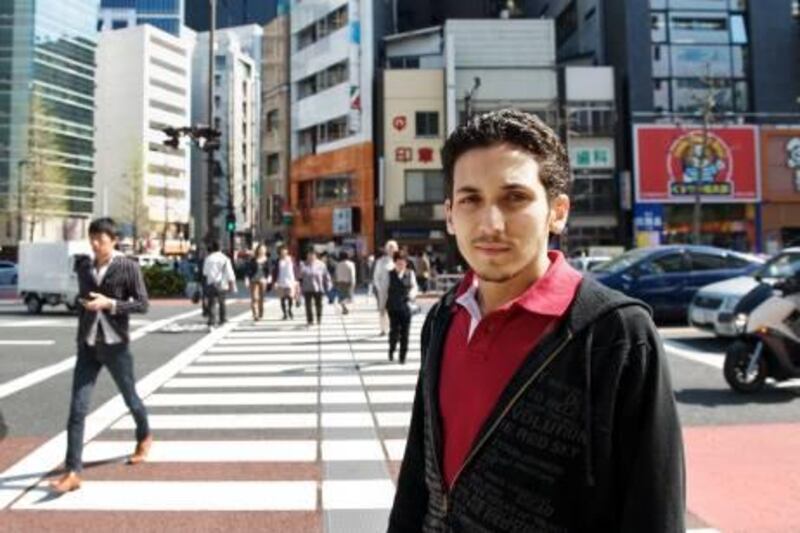ABU DHABI // Just three hours after Alharith al Hashmi touched down in Japan to resume his university studies, he was shaken by yet another aftershock of last month's devastating earthquake.
"I wasn't scared. I just felt like it was greeting me," said the 20-year-old, who landed in Tokyo one week ago, after the UAE Embassy declared it safe for Emirati students to return.
He and more than 50 of his compatriots studying in and around Tokyo have returned to a country much changed from the one they were told to leave. Electricity consumption is restricted, some streets once busy well into the night are empty, and food brands the students knew were 100 per cent halal are difficult to find. In addition, Tokyo and the region to its north-east have been under a constant barrage of huge aftershocks since the magnitude 9.0 earthquake that set off a devastating tsunami on March 11.
"I was on holiday in Abu Dhabi when it happened," said Mr al Hashmi, who has completed three years of a mechatronics engineering course at Tokyo Denki University. "I wasn't worried that much; I just felt uncertain about my future. Until the last minute when I was riding in the car to go to the airport my mother was trying to convince me not to go back."
Having returned to his home in Tokyo's Adachi ward, he said life is returning to normal, though some restrictions on the consumption of water and electricity are still in place.
"You are allowed to buy one bottle of drinking water per person, but you can still go to other shops and buy more," he said. "Everything is open and working, as if people are living with the earthquake."
More than 400 aftershocks of magnitude 5.0 or more have hit north-eastern Japan since March 11. More sizable quakes have hit the area in the past month than Japan typically experiences in two and a half years, according to the Japan Meteorological Agency.
"Yesterday we were in class and we felt a shake," Mr al Hashmi said on Tuesday. "Everyone stayed in their seats because we thought it would be over soon. After 20 seconds passed, they opened the door and were about to evacuate the building if it continued to 30 seconds."
Mr al Hashmi's friend, Ahmed al Marzouqi, lives in Kanagawa, a coastal prefecture south of Tokyo.
He said life in Kanagawa has changed since the earthquake, and is only now returning to normal. "People used to stay in the streets until 1 am. You'd think it's still midday," said the 21-year-old, who is studying cyber-crime engineering at Tokai University. "But when I first came back [on April 7] before university started I was walking alone in the streets, as if no one was in the mood to go out. Most shops that used to stay open until 8pm, for example, are closing at 6pm because they want to lift the [utilities] load off the government."
He also said it is difficult to find the halal juices or food brands that he used to buy.
"But the situation is improving," he said yesterday. "For two days now things have improved a lot, and in five days I think everything will be back to normal."
Despite having to make adjustments in everyday life - from switching off electric devices to preparing for aftershocks - the Emirati students are not fazed, and say they are just relieved to be continuing their studies.
"I was scared I might never go back because of the nuclear reactor," said Abdulaziz al Neaimi, a 20-year-old computer science student at Tokyo University of Technology; he was in Tokyo when the big earthquake hit.
"If I go anywhere else I will have to start from zero. I really want to continue in Japan."
[ hdajani@thenational.ae ]







